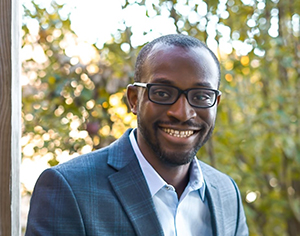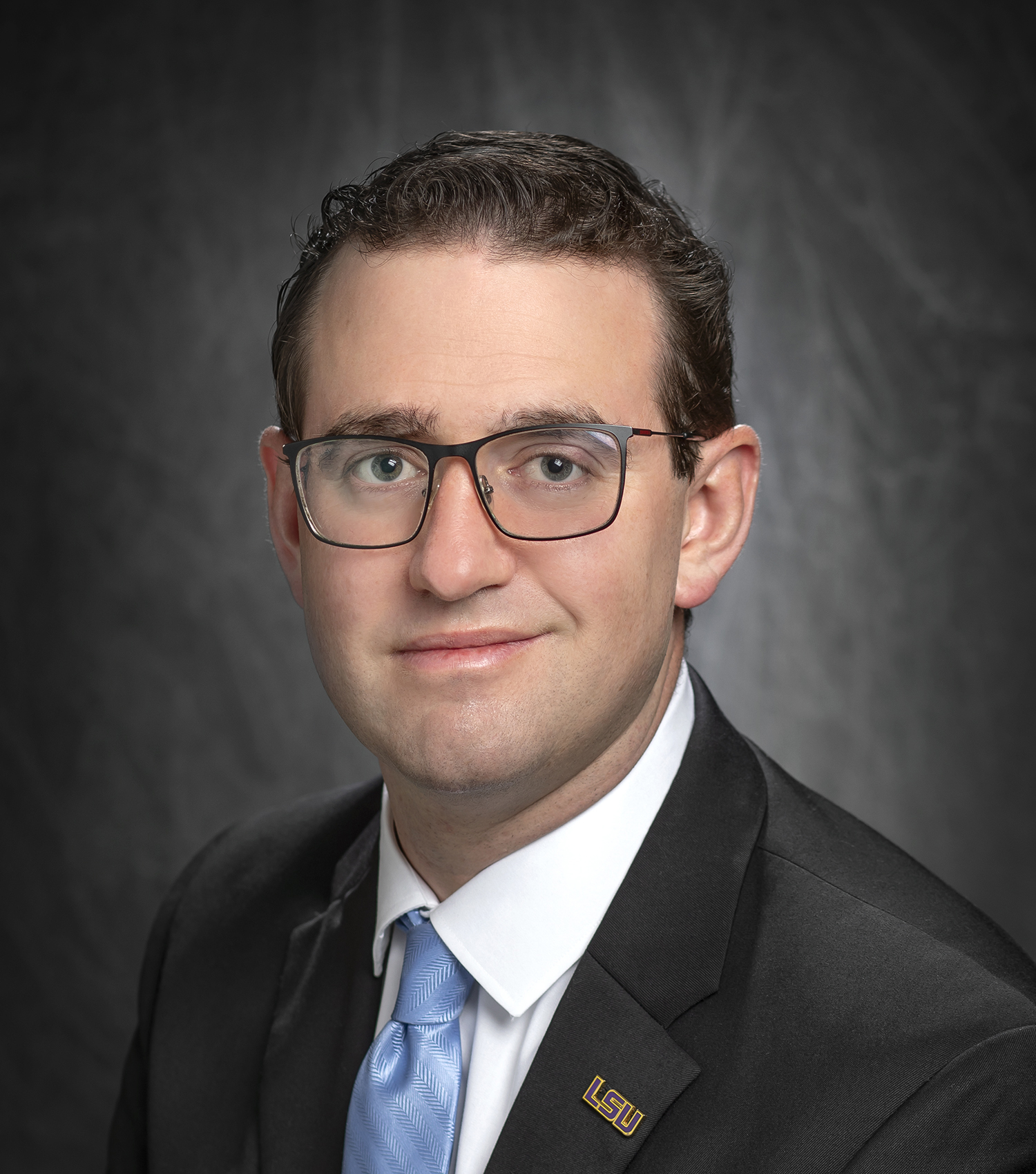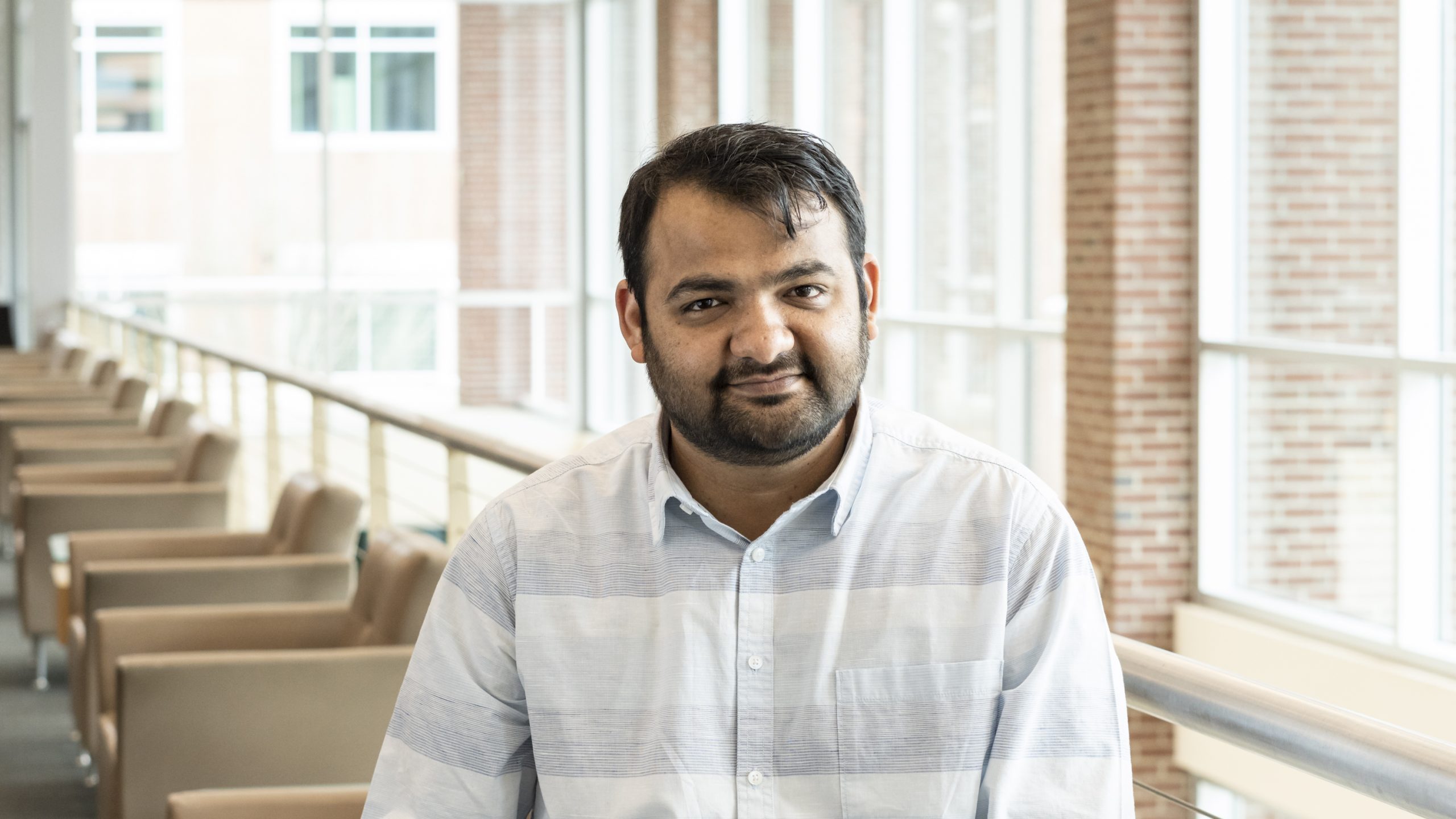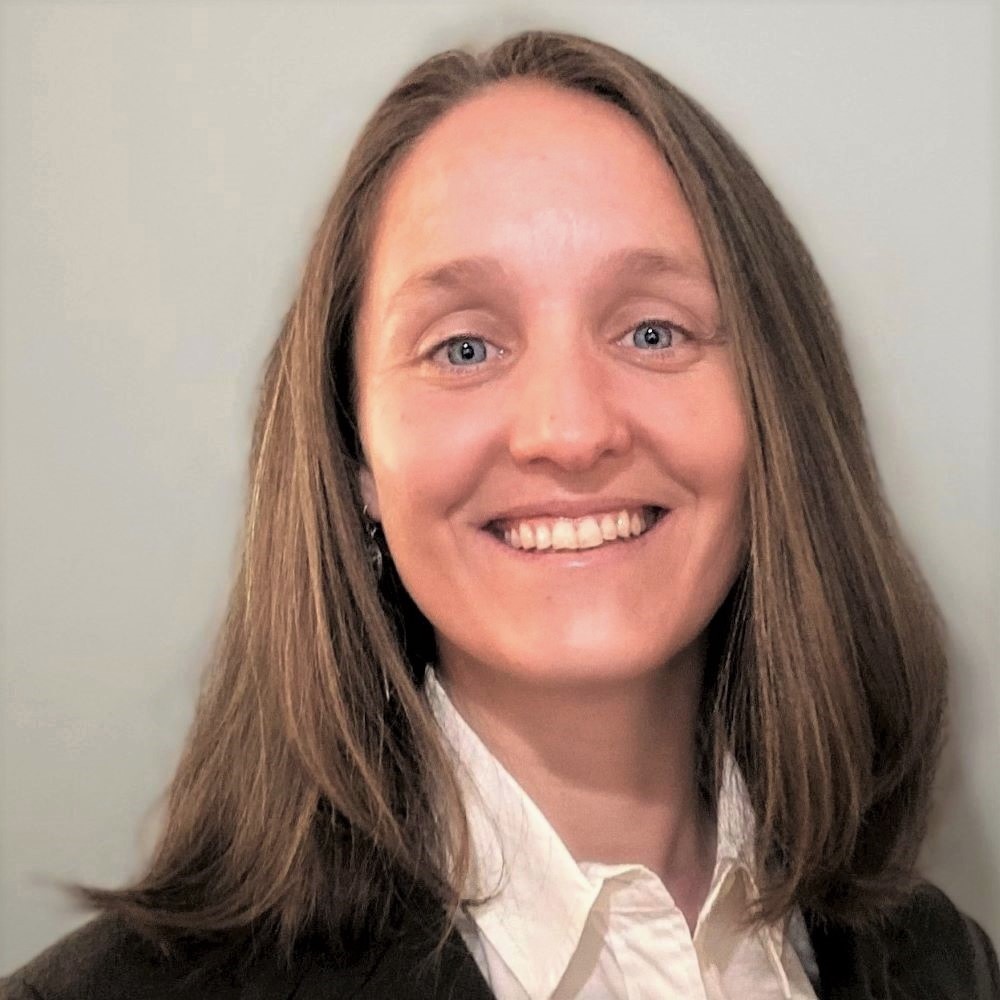Congratulations to Chibueze Amanchukwu; Christopher Arges; Marm Dixit; Marta Hatzell; and Siddharth Komini Babu; the winners of the 2021-2022 ECS Toyota Young Investigator Fellowship for Projects in Green Energy Technology. ECS and the Toyota Research Institute of North America (TRI-NA), a division of Toyota Motor Engineering & Manufacturing North America, Inc. (TEMA), chose the five recipients who are pursuing innovative electrochemical research in green energy technology. Through this fellowship, ECS and Toyota encourage young professionals and scholars to pursue battery and fuel cell research, and hope to see further innovative and unconventional technologies born from electrochemical research.
2021-2022 ECS Toyota Young Investigator Fellows
Chibueze Amanchukwu, University of Chicago
“Synthesis of novel perfluoroether polymer electrolytes for energy-dense solid-state lithium metal batteries”
Chibueze Amanchukwu is Neubauer Family Assistant Professor at the University of Chicago. He received his PhD in Chemical Engineering from the Massachusetts Institute of Technology (2017), with Paula Hammond as advisor. Amanchukwu pursued postdoctorate study at Stanford University with Zhenan Bao (2017-2019) and the University of Cambridge with Clare Grey (2019). His research on electrolyte design for next generation lithium batteries has been recognized by awards including the 2021 3M Nontenured Faculty Award; 2017-2019 Stanford University TomKat Center Postdoctoral Fellowship in Sustainable Energy and California Alliance Postdoctoral Fellowship; 2014-2017 National Defense Science and Engineering Graduate Fellowship; 2014 MIT-Imperial College London Global Fellowship; 2012 Texas A&M ChemE Outstanding Graduating Student Award; and 2011 Texas A&M Craig Brown Outstanding Senior Engineer Award. He has published 19 articles with an h-index of 14 and filed one patent. Amanchukwu serves on the Community Board of Materials Horizon.
Abstract: Solid state lithium metal batteries can transform electric vehicles by extending driving range and improving safety. Current literature has focused heavily on inorganic solid- state electrolytes, but these are plagued by poor mechanical properties, brittleness, and they have poor interfaces with both electrodes. Fortunately, polymer electrolytes can address the challenges facing inorganics. We will use this award to design, synthesize, and characterize novel polymer electrolytes for lithium metal batteries. We will study how ions transport in these electrolytes, and how they affect and enable efficient lithium metal cycling. Our work will lead to affordable electric vehicles that will accelerate worldwide decarbonization efforts.
Christopher G. Arges, Pennsylvania State University
“For understanding electrochemical properties of high-temperature polymer electrolyte membranes and thin film ionomers”
Christopher G. Arges is Associate Professor of Chemical Engineering at Pennsylvania State University and Founder and Chief Executive Officer of Ionomer Solutions, LLC. He completed his PhD in Chemical Engineering at the Illinois Institute of Technology in 2013 with Vijay Ramani (now at Washington University St. Louis) as advisor. His postdoctorate research was pursued at the Pritzker School of Molecular Engineering/Materials Science Division, University of Chicago and Argonne National Laboratory (2013-2015) with advisor Paul Nealey. Arges’ research into polymeric materials for electrochemical engineering has garnered numerous awards including the 2021 Rainmaker Award, Louisiana State University (LSU); 2019 LSU Alumni Rising Faculty Award; 2019 LSU Tiger Athletic Foundation Teaching award; and 2018 3M Young Investigator Award. He is the author of 50 articles with an h-index of 24 and three patent applications filed. Arges has served s as Guest Editor for ECS Interface and the Journal of Power Sources as well as on the ECS Industrial Electrochemistry and Electrochemical Engineering (IE&EE) Division Awards Committee, and as Session Organizer and Chairs for ECS IEEE and Energy Technology Divisions.
Abstract: This project investigates the electrochemical properties of ionomer electrode binders for high-temperature polymer electrolyte membrane (HT-PEM) fuel cells. HT-PEMFCs are important to electrifying heavy duty vehicles like trucks, planes, and marine shipping. These vehicles require larger power plants and fast refueling times, hence fuel cells have advantages over battery technology. By adopting higher temperature operation of the fuel cell, heat is easier to manage in the larger power plants, as large temperature gradients facilitate greater heat rejection. Hence, it is important to develop HT-PEM and ionomer binder materials that are functional and stable at higher fuel cell temperatures. This project will help elucidate the ionomer-electrocatalyst interactions that govern reaction kinetics and gas diffusivity mechanisms in porous electrodes.
Marm Dixit, Oak Ridge National Laboratory
“Li Metal Polymorphism and its Impact on Anode Integration in Solid-State Batteries”
Marm Dixit is the Weinberg Distinguished Staff Fellow at Oak Ridge National Laboratory (ORNL). He completed his PhD at Vanderbilt University in 2020 under the supervision of Kelsey Hatzell. Beginning with his undergraduate studies in India, he has worked on emerging and solid state batteries. At Vanderbilt, he investigated failure onset and growth mechanisms for several exemplary solid electrolyte materials, and developed a manufacturing platform for scalable production of hybrid solid electrolytes. At ORNL, Dixit is pursuing further research on SSBs and other emerging energy storage technologies. His research has garnered awards including being a finalist for the 2020 Directors Fellowship of the National Renewable Energy Laboratory; 2018 Vanderbilt University Graduate Student Travel Grant; and 2017 and 2019 ECS Travel Awards. Dixit has published 23 articles with an h-index of 12 and has five patents. He has had one book chapter accepted and two are under revision.
Abstract: The proposed work is aimed to look at the Li metal structure as it operates in a solid state battery and use that fundamental knowledge to engineer high performing systems. This requires developing a fundamental understanding of Li metal structure for integration into solid state batteries. Current battery technology employs a host material to reversibly store Li ions into its matrix. With solid state batteries, scientists seek to replace the host material with dense Li metal which is expected to provide three times the driving range compared to conventional batteries.
Marta Hatzell, Georgia Institute of Technology
“A spectroscopic investigation on water dissociation mechanisms in bipolar membranes for CO2 electrolysis”
Marta Hatzell is Associate Professor of Mechanical Engineering at the Georgia Institute of Technology. She completed her PhD in Mechanical Engineering in 2014 with Bruce Logan as advisor. Her postdoctorate research was performed with Paul Braun in the Department of Material Science and Engineering at the University of Illinois Urbana Champaign. Her research has focused on developing sustainable separations and catalytic technologies to mitigate challenges related to the food, energy, and water nexus. Awards she has received include the 2021 Woodruff Fellowship; 2020 ONR Young Investigator Award; 2020 Alfred P. Sloan Foundation Award; 2019 NSF CAREER Award; and NSF Graduate Research Fellowship (2011-2014). Hatzell has published some 50 articles with an h-index of 26 and has four patents. She is the Commissioning Editor at iScience. She served as a volunteer with ECS, organizing a symposium on electrochemical nitrogen reduction.
Abstract: The overall goal of this research project is to unravel energetic losses within bipolar membranes using advance spectroscopy and accelerate the development of bipolar membrane reactor architectures for CO2 electrolysis. Bipolar membrane-based electrolysis reactors could long-term enable the generation of energy efficient carbon-based electrofuels (i.e., methanol, ethelyene, CO) using carbon dioxide as the feedstock and renewable energy as the sole power source. Thus, this could aid in advancing the development of negative emissions-based technologies while displacing current practices for acquiring hydrocarbons.
Siddharth Komini Babu, Los Alamos National Laboratory
“Novel Gas Diffusion Layer architecture for Improved Performance and Durability”
Siddharth Komini Babu is Staff Scientist at Los Alamos National Laboratory. His research focuses on understanding transport phenomena and development of electrode architecture for fuel cells and electrolyzers using computational and experimental methods. He completed his PhD in 2016 at Carnegie Mellon University with advisor Shawn Litster. His postdoctoral work took place at Los Alamos National Laboratory (2016-2019). Komini Babu is the author of 25 articles (including seven ECS Transactions) with an h-index of 13. He has four patent applications.
Abstract: This proposal aims to probe the role of gas diffusion layers (GDL) and microporous layer on the durability of polymer electrolyte fuel cells. The goal is also to develop tailored GDLs (and MPLs) for cathode and anode with improved durability for long term operation without compromising performance.
2020-2021 selection committee
Special thanks to the volunteers who served on the ECS Toyota Young Investigator Fellowship Committee, a joint body of ECS and TRI-NA representatives.
The Electrochemical Society
- Gang Wu, University of Buffalo
- John T. Vaughey, Argonne National Laboratory
- Elizabeth Biddinger, The City College of New York
Toyota Research Institute of North America
- Ryuta Sugiura
- Hongfei Jia
- Timothy (Tim) Arthur
- Charles (Chip) Roberts
- Shingo Ota
The committee evaluated all of the proposals based on their alignment with Toyota’s current technical needs; the unique, innovative or unconventional nature of the technical approaches; and the feasibility of the technology to positively impact the field of green energy. The committee’s recommendations were reviewed by the ECS Education Committee which forwarded the recommendations to the ECS Board of Directors for final review and approval.
ECS Toyota Young Investigators Fellowship
The selected fellows each receive $50,000 in grants to conduct the research outlined in their proposals and a one-year complimentary ECS membership.
Fellows submit a midway progress report to ECS and, after one year of funding, a final written report. Their findings are published open access in a relevant ECS journal. They may also present at an ECS meeting within 24 months of the end of the research period. At the end of the award period, depending on the research progress and the results obtained, Toyota may enter into a research agreement to continue working with the Fellow.
Candidates must be under 45 years of age and working in North America. The candidate must submit an original research proposal for review by the ECS Toyota Young Investigator Fellowship Committee.
The recipient must be a member in good standing of The Electrochemical Society (ECS). There are no restrictions or reservations regarding age, sex, race, citizenship, or place of origin or residence.
For more information about the ECS Toyota Young Investigators Fellowship, names of prior Fellows, and their research projects, consult ECS Toyota Young Investigator Fellowship webpage.
2022-2023 Fellowship cycle
The request for proposals for the next ECS Toyota Fellowship cycle opens in November 2021 with a submission deadline of January 31, 2022. Candidate interviews take place in February and March of 2022. The Fellows’ names are announced in May or June of 2022.







